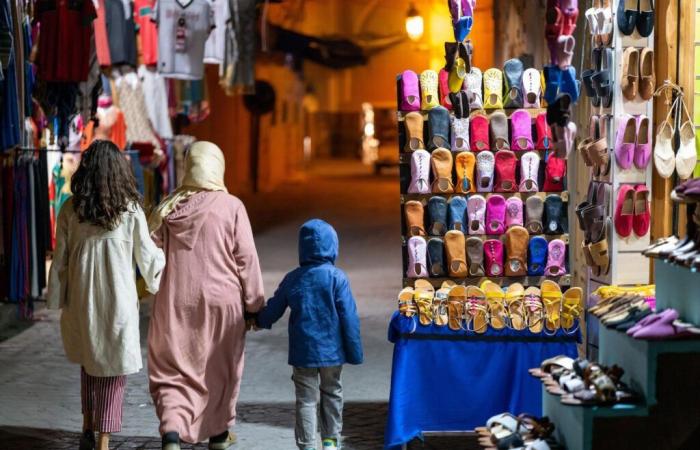We don’t mess around with the “Moudawana” in Morocco, which calls its family code that way. It has been two years since a reform project was launched, going through numerous filters. Objective: to ensure that legislative developments remain in line with the country. And now a draft text appears on December 24, in the form of a proposal from the Minister of Justice, Abdellatif Ouahbi. It is now up to legislators to take control of it. “From this democratic and transparent process, a consensus emerges which does not fully satisfy any party, but which, in our eyes, contains interesting advances, presented a bit like a Christmas present”summarizes Aicha Zaimi Sakhri, president of the Association for the Promotion of the Culture of Equality.
Towards shared parental guardianship
At the origin of this overhaul, there was first the royal request to “remove obstacles” and correct some « imperfections ». Then in the fall of 2023, King Mohammed VI gave the modernist government six months to consult civil society, via a representative committee. Then, the reflection is passed through the religious sieve, that of the Superior Council of Ulemas chaired by the monarch himself, as commander of the believers.
Aicha Zaimi Sakhri hopes that the second conference on feminism which she will organize next April will help to shed light on the examination of the deputies, the timetable of which remains to be set. Some main points are already known. Guardianship of the children will be shared equally between the father and the mother, including after a divorce. Women will be able to remarry without losing custody of their children. This small revolution resulted in inflaming the most conservative voices on social networks. Some men threaten to “remain single for life”, while warning against a text which would further threaten the already declining birth rate: 1.97 children per woman in 2024, below the renewal threshold, at 2.1. The royal cabinet, for its part, highlights its pragmatism through the notion of “constructive ijtihad”, an approach which values the reinterpretation of the fundamental principles of sharia according to developments in society.
Frustrating compromise
Feminists have not only obtained satisfaction, due to religious imperatives. The king had in fact established as a principle that he “What is prohibited will not be permitted”. Thus, polygamy will remain, despite demands for its outright repeal, even though this practice only concerns 1% of households. On the other hand, the opinion of the first wife must be taken into account in the clauses of the marriage contract. Regarding unions, the numerous exemptions to authorize marriages before the legal age set at 18 will remain possible, although within a stricter framework. They will be permitted from the age of 17, compared to 15 years old to date.
Concerning inheritance and filiation, here again, equality between men and women was not retained. In the case of a couple who only had daughters, the religious rule is that the uncle or cousin can inherit. The proposal on the table, however, provides for extended recourse to donations, which can now be made without limit to girls, including minors. Parents will therefore be able to make their arrangements more easily.
“This is all well and good, but it has not changed the current patriarchal paradigm, where men remain the leaders and providers of money,” regrets Aicha Zaimi Sakhri. For her, the expanded donation is a plus, but many questions remain: “What happens to low-income families who have nothing to give? Will gift taxes be lifted? Under what conditions will a widow be able to stay in her home? This is all that we want to follow closely during the debates. » The last reform of the family code dates back to 2004. To avoid waiting another twenty years for the next reform, feminist organizations are pleading with others to ensure that the notion of “ijtihad” can be applied over time. water, through the creation of a permanent commission which continually reflects on adaptations of religious tradition.






